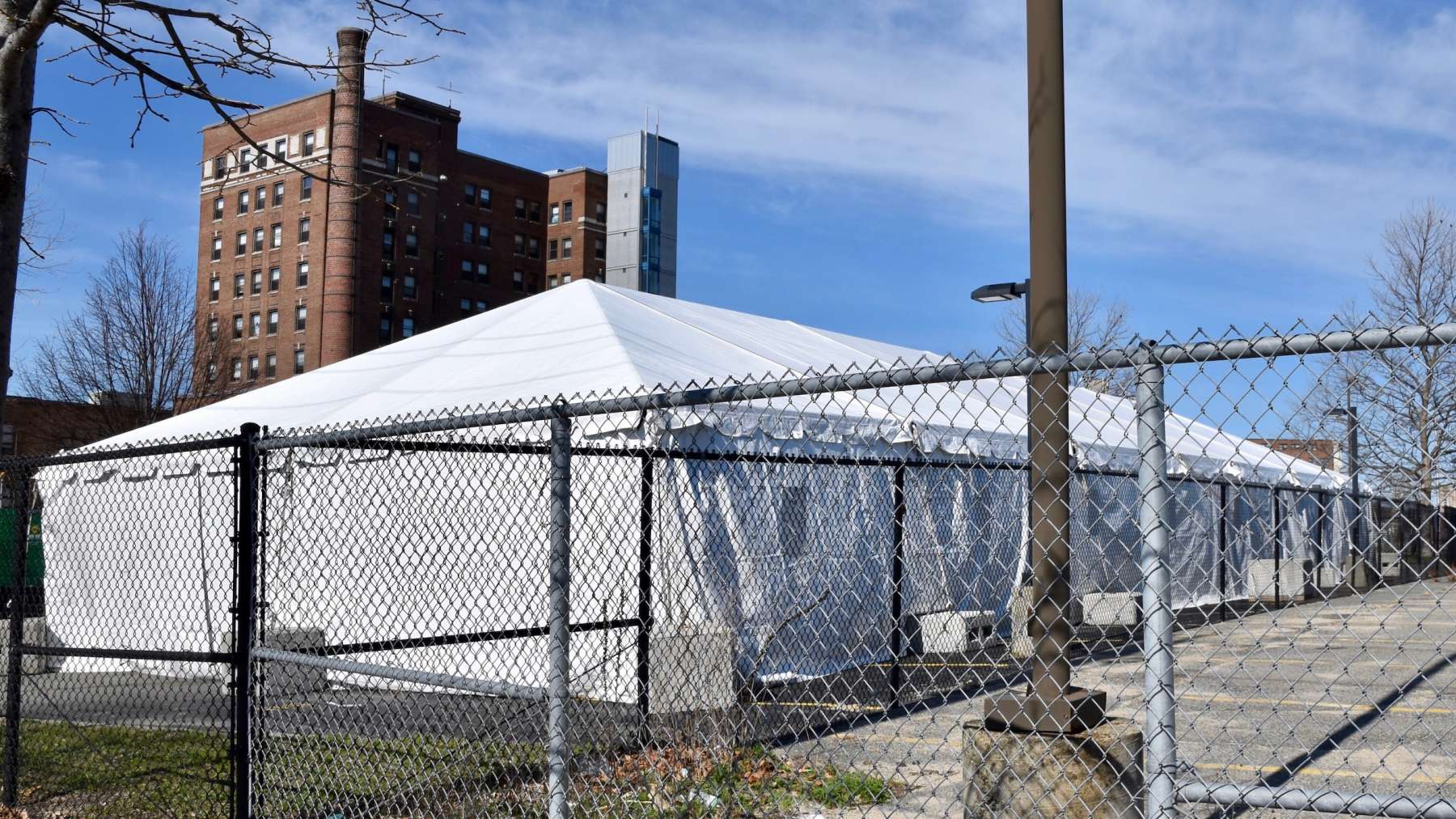Model: Nearly 800 RIers experiencing homelessness to require emergency COVID-19 accommodations
“People who are unsheltered face unique barriers to prevention strategies like sheltering in place and physical distancing as they are highly mobile. This is further compounded by a lack of access to basic utilities – running water for hand washing and basic hygiene, and even electricity to power devices.” A model from researchers at University of Pennsylvania, Boston University School
April 23, 2020, 1:12 pm
By Rhode Island Coalition for the Homeless
“People who are unsheltered face unique barriers to prevention strategies like sheltering in place and physical distancing as they are highly mobile. This is further compounded by a lack of access to basic utilities – running water for hand washing and basic hygiene, and even electricity to power devices.”
A model from researchers at University of Pennsylvania, Boston University School of Social Work, and UCLA projects that at any given point in time nearly 800 Rhode Islanders experiencing homelessness will require some level of emergency accommodations due to COVID-19.
The interactive model was recently released based on an April 3rd report, which estimates the emergency and observational/quarantine capacity needed for every Continuum of Care (CoC) in the country. Projections do not account for the ~30% of Rhode Islanders experiencing homelessness as part of a family unit. Families and children were excluded from the report because they tend to be sheltered in private rooms, not in congregate settings.
At any point in time 1,055 Rhode Islanders experience homelessness. Based on this number, projections show that emergency accommodations will be needed for 788 single adults.
As preparations are made for the next six months, projections predict that 473 people who are experiencing homelessness will develop COVID-19 and require emergency accommodations. This can lead to a projected 51 hospitalizations (17 ICU admissions) and 8 fatalities.
Russ Partridge, executive director of The WARM Center in Westerly, highlights the geographic disparity many Rhode Islanders experiencing homelessness face, “Those who are homeless in the northern and southern parts of the state experience even more difficulties due to the lack of resources. Getting to a hospital, testing sight or primary care provider makes diagnosis and treatment even more challenging. Also, not having the resources to self-quarantine can make recovery more difficult.”
The immediate response needed to decelerate the spread of COVID-19 amongst the homeless community is to reduce the number of people in congregate settings. A first step was recently taken by Governor Gina Raimondo and the State of Rhode Island, who arranged for some clients in shelter to transfer into hotels – not just those who have come in contact with COVID-19.
On a typical night in 2019, 65 Rhode Islanders were living outdoors or in their cars. In 2020, preliminary figures show these numbers have almost doubled, even before COVID-19 hit, with an estimated to be 123 unsheltered individuals on any given night (based on January 2020 Point-In-Time Count).
Laura Jaworski, executive director of House of Hope Community Development Corporation, highlights the unique barriers of individuals who are unsheltered, especially during the COVID-19 crisis, “People who are unsheltered face unique barriers to prevention strategies like sheltering in place and physical distancing as they are highly mobile. This is further compounded by a lack of access to basic utilities – running water for hand washing and basic hygiene, and even electricity to power devices.”
These increased needs means that outreach workers must adapt to a changing environment. Jaworski’s team has “become ad hoc public health workers to not only offer clear and consistent education, but also make sure everyone is able to have basic needs met.”
Housing is the preeminent long-term intervention to stymie the spread of the coronavirus (SARS-CoV-2). The strain on the already burdened homeless, justice, and healthcare systems will only increase during the pandemic without immediate and long-term intervention.
Caitlin Frumerie, Executive Director of the Rhode Island Coalition for the Homeless lauds the emergency accommodations the state has arranged, however, she notes that housing based solutions are still the key to post-pandemic success. “We are grateful for the emergency precautions the State has taken to slow the spread of the virus in congregate shelters, however this cannot be a long term solution. In order to truly address homelessness, and the negative health outcomes that are inextricably linked, we must prioritize affordable housing and supportive services. In short, if we are ever going to contain COVID-19, we need to ensure that everyone has a real home.”
The Rhode Island Coalition for the Homeless staffs the State’s COVID-19 Homeless Response Team and serves as the go-between for State resources and homeless service and shelter providers. For more information on our COVID-19 response, please visit: rihomeless.org/covid-19.
About Rhode Island Coalition for the Homeless: The Coalition works collaboratively with advocates, providers, and faith-based organizations to create and advance lasting solutions to prevent and end homelessness. Notably, the Coalition, alongside advocates and constituents, lobbied and successfully passed the nation’s first Homeless Bill of Rights in June of 2012 (bill S-2052). Day to day the Coalition runs lead on the state’s Homeless Management Information System (HMIS) and the permanent housing placement end of the Coordinated Entry System (CES), we hold legal clinics, facilitate training sessions, and more.
[FROM A PRESS RELEASE]






